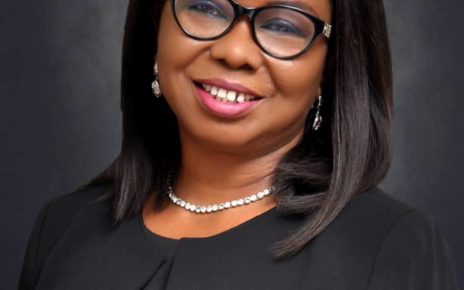The Director-General of the World Trade Organization (WTO), Dr. Ngozi Okonjo-Iweala, at the weekend charged African governments to remove all trade barriers, especially cost-related ones, in order to optimally explore the opportunities in the African Continental Free Trade Agreement (AfCTA) for national development.
The foremost economist noted that the high costs African exporters were experiencing at intra-Africa and global trade frontiers were too high due to multiple tariffs, which she estimated to be about 350% higher than what obtained in the developed countries.
Okonjo-Iweala, a former Nigerian Supervisory Minister of Finance, expressed this concern last Friday when the International Monetary Fund (IMF) discussed its paper about the potential for the AfCFTA.
She clarified: “This is an equivalent of 350% tariffs and is 1.5 times larger than what you would find in developed countries.
“The costs are because of the barriers, trading with trade in Africa is equivalent to 435% tariff. “Unless we can deal with the costs and bring them down, it would be difficult for us to actualise good implementation of the AfCFTA
“Let’s reduce costs, we are starting and assisting at the WTO, we spent about 4 million euros in the past 3 years helping different countries build capacity based on WTO standards and rules which is very good, we want this to happen, we need to look at the European Union, where trade is 60%, in ASEAN it’s about 21%, for us in Africa has ways to go”, the WTO Director-General advised.
Apart from the high tariffs and other costs being faced by African exporters, Okonjo-Iweala further noted that business owners in the continent were suffering from multiple shocks, including the devastating shocks from the Covid-19 pandemic and the ongoing Russia-Ukraine war.
The WTO boss explained: “So many shocks, and recovering from these shocks need the continent to recover and to grow and that’s the first point.
“We see that supply chains globally have also exhibited some vulnerabilities and this has led to the thinking that regional trade and strengthening, regional integration is a good instrument.
“That is why at this particular time, making the AfCFTA work is important to enabling Africa to strengthen regional activity with each other”, Okonjo-Iweala added.
Despite the challenges, the economist maintained that there were opportunities in the vulnerabilities as the world is building resilience to diversifying supply chains that are currently too concentrated in certain areas and products.
For example, she cited Africa that has been importing 99% of vaccines and 90% of our therapeutics, querying why African governments cannot make them and by doing so, create opportunity to build pharmaceutical and medical supply chains so that they are not caught napping when there is a pandemic.
Okonjo-Iweala, who described the AfCFTA as an instrument for the aspirations of the continent, a key instrument to deliver agenda 2063 of the African Union which seeks to industrialize the continent and bring growth, advised African leaders and policy makers to benefit from its immense opportunities.



